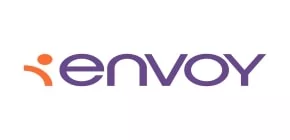Although it has existed for nearly five years, the International Entrepreneur Parole (IEP) program has received very little attention from employers and foreign workers. The Obama administration established the program in 2017 and has been the subject of extensive litigation since its inception.
Shortly after its implementation, the Trump administration suspended the program before candidates could begin submitting applications.
Renewed hope is once again on the horizon for the IEP program, which was recently revived by the Biden administration as part of the president's ambitious agenda to reform the nation's immigration policies.
What is the International Entrepreneur Parole Program?
The IEP program is intended to help foreign entrepreneurs establish startup businesses in the U.S. The program is consistent with the International Entrepreneur Rule, which was issued by the Department of Homeland Security (DHS) to allow foreign entrepreneurs to remain employed in the U.S. if they enter the country with the purpose of starting a new company.
Based on the program's rules, up to three eligible entrepreneurs per startup entity may be admitted into the U.S. Initially, they are granted a maximum stay of 2 ½ years. However, extensions are permitted for an additional 2 ½ years if the startup entity continues to provide a "significant public benefit," which may be evidenced through job creation, revenue or large increases in capital investment.
Background of the IEP Program
The IEP program began on Jan. 17, 2017, when DHS published the final version of the International Entrepreneur Rule. The program was scheduled to take effect on July 17, 2017, which is also when DHS planned to begin accepting applications.
However, the program was put on hold through an executive order President Trump issued on Jan. 25, 2017. The IEP's effective date was delayed until March 14, 2018.
Following a favorable ruling in NVCA v. Duke in Dec. 2017, DHS was required to implement the program based on the U.S. District Court for the District of Columbia's decision. Although applications were once again accepted, DHS published a proposed regulation in May 2018 to end the program.
On May 10, 2021, DHS announced that it would reinstate the IEP program to align with President Biden's intention of creating a welcoming atmosphere for foreign entrepreneurs and furthering the nation's spirit of promoting entrepreneurship.
Who is Eligible for the IEP Program?
To be eligible for the IEP program, entrepreneurs must demonstrate a "significant public benefit" to the country.
Entrepreneurs must meet several criteria, including:
- The startup must have been established in the U.S. within the past five years
- The applicant must have a "significant" ownership in the company
- The applicant must play a "central and active role" in the startup entity
Additional information about the program's requirements is available on Envoy's related International Entrepreneur Parole program article.
Is the IEP Program a Startup Visa?
Although it is designed to help startup companies operate in the U.S., the IEP program, which is based on the International Entrepreneur Rule, is not a startup visa. Instead, the Rule grants parole in certain circumstances based on DHS' discretion.
What are the Benefits of the IEP Program?
According to a 2017 study from the New American Economy (NAE), the IEP program could have tremendous benefits for the U.S. economy. NAE found that over the course of 10 years, the program would create at least 200,000 jobs across all sectors.
However, NAE's estimates were even greater for startup entities in the science, technology, engineering or math (STEM) fields. For STEM startup entities alone, the IEP program could create up to 308,460 jobs over the course of a decade. Most of those jobs would be created in the areas of healthcare, professional services, the sciences and technology.
If the IEP program avoids additional legal snares, it has the potential to thrive under the Biden administration. The program may bring much needed economic stimulation to the U.S., which has faced economic challenges since the COVID-19 pandemic began. By creating jobs in the U.S. and attracting foreign entrepreneurs to U.S. soil, the IEP program will help to ensure that the U.S. remains a top destination for the "best and brightest" foreign entrepreneurs.
Originally Published 9 June, 2021
The content of this article is intended to provide a general guide to the subject matter. Specialist advice should be sought about your specific circumstances.

